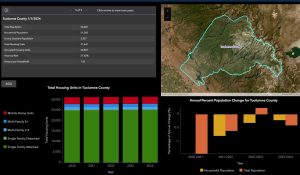Sacramento, CA — State officials are touting that California’s population increased for the first time in three years.
On January 1st of this year, the state’s population was just over 39.1 million, a rise of 67,000 from one year prior. California lost population in 2020 for the first time on record, and the downward trend continued for three consecutive years.
The California Department of Finance, the agency which tabulates the numbers, attributes the 2024 increase to rising international immigration, and fewer people relocating to other states.
Tuolumne, Calaveras, and Amador counties lost population over the past year, as did the City of Angels Camp. Meanwhile, Mariposa County, and the City of Sonora, had slight population increases.
Tuolumne County’s population on January 1st of 2023 was 54,626 and declined to 54,407 as of January 1st of this year.
Calaveras County was at 44,899 last year and fell to 44,842 this year.
Mariposa County went from 16,968 a year ago to 16,966 this year.
Amador County was at 39,924 last year and fell to 39,611 this year.
Angels Camp fell from 3,604 to 3,587.
Sonora went up from 5,119 to 5,132, however, the numbers are complicated. The number of Sonora residents living in a residential home or apartment setting actually declined from 4,821 in 2023 to 4,809 in 2024. The overall increase instead came from people living in group quarters, from 292 last year to 323 this year. Group quarters are defined as “group living arrangements” which includes things like correctional facilities, nursing homes where people are receiving care, shelters where people are getting help, and unsheltered areas where people congregate.
Tuolumne County, which includes the Sierra Conservation Center state prison, has an overall Group Quarters population of 3,357 (down from 3,471 a year ago), Calaveras has 428, Sonora has 323, and Angels Camp has 44.
Overall, California’s population grew in 31 counties, largely in the Bay Area, Central Valley and Inland Empire.

